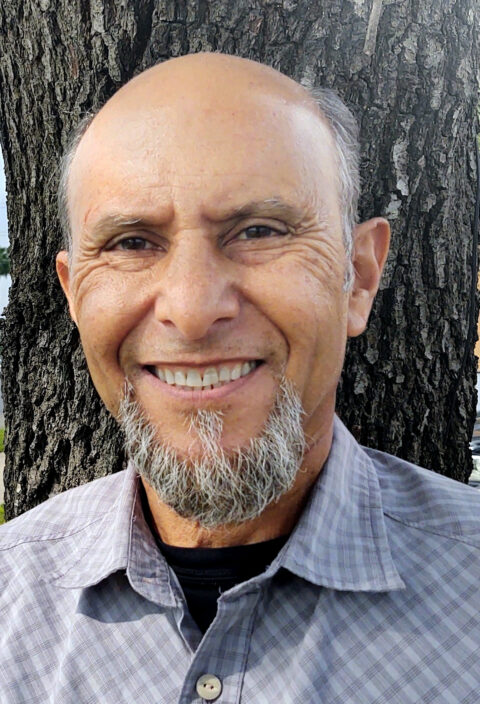Above: Pre-COVID students on campus, Photo by Elena Zhukova
On a summer day in 1980, a dozen farm laborers were brought to the emergency room at Natividad Medical Center in Salinas suffering from dizziness, vomiting, breathing difficulties, and slow heart rates.
They reported being sent to work in a cauliflower field that had been sprayed with two powerful pesticides only six hours earlier, and Dr. Antonio Velasco and his colleagues sprang into action.
That incident would change Velasco’s life.
Not only would Velasco go on to develop protocols for treating pesticide-poisoning victims and help write a paper detailing how organophosphate chemicals affect a critical brain enzyme, but he would also play a role in the adoption of a California rule requiring that recently sprayed agricultural fields be posted with warning signs and help start a Salinas medical clinic that primarily served those who worked in the fields.
He would be harassed and his medical license threatened. But, in 1992, he would be named Family Physician of the Year by the California Academy of Family Physicians.
“I was just a cog in the wheel” in the fight against pesticide poisonings, said Velasco by phone from his winter home in Cofradía de Suchitlán, Mexico, the village where he was born. He said he was “blessed and privileged” to have lived the life he did. His story is the subject of a 2020 biography titled Fields of Poison by Michael Halperin.

Antonio Velasco. Photo credit: David Velasco Jr.
Velasco, now 67, immigrated to the United States with his mother and siblings when he was 11. Even at that age, he worked alongside his mother and father in the fields, picking tomatoes, grapes, and lemons, and thinning lettuce crops with a short-handled hoe. He changed schools often as the family moved, and, despite his good grades, he said, he was twice placed into special-ed or noncollege–track classes simply because of his background. He was determined not to spend his life in the fields, however, and was accepted to UC Santa Cruz, where his path turned him toward medicine and activism.
Volunteering as a translator at a low-cost Watsonville clinic for then–campus doctor Mark Nitzberg, Velasco said he saw the need for physicians who not only spoke Spanish but also understood the culture of immigrants. Velasco decided to go to medical school.
It was also at UCSC where he began to learn about the institutionalized racism embedded in the fabric of his adopted country. He joined MEChA (Movimiento Estudiantil Chicanx de Aztlán) and founded Chicanos in Health Education (CHE). Eleven of its original 12 members became medical doctors, according to him.
“I saw the way immigrants were treated,” he said, “and I became angry. It was an anger that I channeled into change and into positive action, and I became a social activist.”
Rejected from medical school at UC Davis on the grounds he wasn’t yet a citizen, Velasco used the system’s own rules to challenge the finding and was eventually accepted. Seeing the needs of farmworker families in Salinas after medical school, Velasco, along with a colleague and two other UC Santa Cruz alumni—family physician Dr. Jeffrey Solinas (Merrill ’74, Latin American studies); Monterey County Superior Court Judge Lydia Villarreal (Merrill ’76, psychology); and then home-visiting public health nurse Luisa Buada, now CEO of Ravenswood Family Health Center in East Palo Alto—founded Clínica Popular, a nonprofit corporation that served farmworkers in the Salinas area. The clinic, now called Clinica de Salud del Valle de Salinas, has expanded to 13 locations in Monterey County.
Velasco worked at Natividad Medical Center, had his own medical practice, conducted research and continued his social activism.
Diagnosed with systemic lupus in 1998, he retired in 2000.
“They say attitude, not aptitude, determines altitude,” Velasco said. “I saw opportunity where there was opportunity and I acted on it.”

